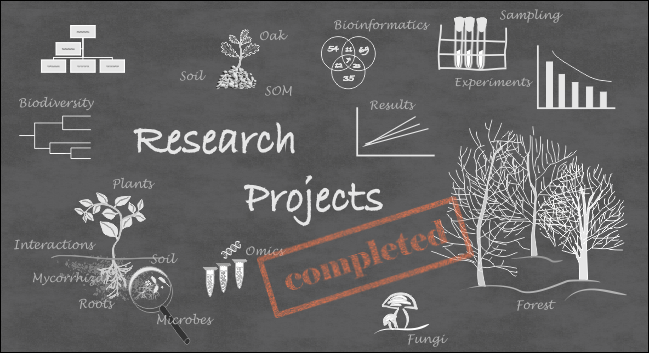» Biodiversity Experiments
Funding: DFG | different project phases

Web:
Biodiversity Exploratories
Project term: 2020 - 2023 (sixth phase)
Microorganisms & Fungi (core project 8)
"Species diversity and community composition of soil microorganisms in grassland and forest ecosystems along land use gradients in the three German biodiversity exploratories"
Within the "German Biodiversity Exploratories", the project "Core8" aims at monitoring soil microbial diversity by applying high-throughput molecular techniques, bioinformatics and machine learning. This project phase includes work on the following current research priorities:
i) microbiological investigation of such major groups as bacteria, archaea, mycorrhizae and micro-eukaryotes,
ii) acquisition of barcoding information for further analysis in the associated partner projects,
iii) collection of data not only on structural but also on functional diversity,
iv) use of bioinformatics applications to determine both network structures and key species in soils and their functional/genetic properties.
Contact:
Prof. Dr. François Buscot , Dr. Kezia Goldmann , Beatrix Schnabel
Web: Microorganisms & Fungi
Partners:
Leibniz Institute DSMZ - German Collection of Microorganisms and Cell Cultures (Germany), Helmholtz Zentrum München (Germany)
BLD-MFD-HZG III (contributing project)
"BELongDead - Multitrophic functional diversity in deadwood"
The project "BELongDead III" (within the framework of the well-replicated BELongDead experiment established in the Biodiversity Exploratories) aims to continue and extend the temporal investigations from the previous project phases. In addition, a complementary supplementary experiment is planned, which will allow to investigate the importance of colonization and establishment and their influence on successional trajectories across different species groups. The focus of this project is on all relevant and underlying molecular and biochemical mechanisms and processes of organism-influenced deadwood decomposition in the context of forest management intensities and spatial-geographic scaling.
Contact:
Prof. Dr. François Buscot , Dr. Julia Moll , Dr. Björn Hoppe (JKI Braunschweig)
Web: BLD-MFD-HZG III
Partners:
Dresden University of Technology - TU Dresden (Germany)
Project term: 2017 - 2020 (fifth phase)
core project 8 - Microorganisms
"Soil fungal diversity and community composition of grassland and forest ecosystems along land-use gradients in three German Biodiversity Explanatories"
Contact:
Prof. Dr. François Buscot , Dr. Tesfaye Wubet , Dr. Kezia Goldmann , Ricardo Schöps , Beatrix Schnabel , Luise Kaiser
Web: Microorganisms
MicroSYSteM II (contributing project)
"Microbial Data Synthesis and Meta-analysis for the Biodiversity Exploratories"
Contact:
Prof. Dr. François Buscot
Web: MicroSYSteM II
BLD-FFD-HZG II (contributing project)
"BELongDead - Fungal Functional Diversity - Halle/Zittau/Grafenau (BLD-FFD-HZG). Fungal and bacterial structural diversity and the expression and diversity of wood decay relevant genes in coarse woody debris"
Contact:
Prof. Dr. François Buscot , Dr. Julia Moll , Dr. Björn Hoppe
Web: BLD-FFD-HZG II
Project term: 2014 - 2017 (forth phase)
core project 9 and 11 - Microorganisms
"Soil fungal diversity and community composition of grassland and forest ecosystems along land-use gradients in three German Biodiversity Explanatories"
Contact for core project 9: Prof. Dr. François Buscot , Dr. Tesfaye Wubet , Ricardo Schöps , Dr. Kathrin Patsias, Beatrix Schnabel
Contact for core project 11: Prof. Dr. François Buscot , Dr. Tesfaye Wubet , Kezia Goldmann , Sandra Klemmer , Beatrix Schnabel
Web: Microorganims
MicroSYSteM (contributing project)
"Microbial Data Synthesis and Meta-analysis for the Biodiversity Exploratories"
Contact: Prof. Dr. François Buscot
Web: MicroSYSteMBLD-FFD-HZG (contributing project)
"BELongDead - Fungal Functional Diversity - Halle/Zittau/Grafenau (BLD-FFD-HZG). Fungal and bacterial structural diversity and the expression and diversity of wood decay relevant genes in coarse woody debris"
Contact: Prof. Dr. François Buscot , Dr. Björn Hoppe
Web: BLD-FFD-HZG
Project term: 2008 - 2011 and 2011 - 2014
core project - SOILFUNGI
"Long-term investigation of soil fungi in grasslands and forests; spatio-temporal variations of fungal communities"
Contact: Prof. Dr. François Buscot , Dr. Tesfaye Wubet , Sandra Klemmer , Kezia Goldmann
Web: SOILFUNGI
Funwood and Funwood II (contributing projects)
"The effect of forest management intensity on the diversity of wood-decaying fungi and dead wood decomposition"
Project term: 2009 - 2013 (Funwood), 2011 - 2014 (Funwood II)
Contact: Prof. Dr. François Buscot , Dr. Dirk Krüger, Björn Hoppe , Witoon Purahong
Web: Funwood IIFuPerS (contributing project)
"Fungal perioxidases in soils: functional and taxonomic diversity and enzymatic activities under varying land use regimes in German biodiversity exploratories"
Project term: 2008 - 2011
Contact: Prof. Dr. François Buscot , Dr. Dirk Krüger, Danuta KapturskaWeb: FuPerS
Funding: BiodivERsA, DFG | Project term: 2020 - 2023
Web:
BiodivERsA

BiodivERsA - the network programming and funding research on biodiversity and ecosystem services across European countries and territories. BiodivERsA is funded under the Horizon 2020 ERA-NET COFUND scheme.
- BiodivERsA call 2018-2019 – funded project:
"SuppressSOIL - Soil biodiversity and suppressiveness of soil against plant diseases and insect pests"
The project investigates microbiome and functional commonalities with respect to soil properties on a scale from soils with long-lasting intrinsic suppressiveness to soils where this disease resistance should be brought about mainly with specific agricultural management strategies.
The first approach is based on chromatographic soil profiling, quantification of soil diversity using metabarcoding techniques, and targeted monitoring of the totality of phytopathogens and insect pests. Suppressive and non-suppressive soils are also compared under controlled and free conditions. Another approach is based on experimental evaluation of a) the ability of suppressive soils to control large numbers of phytopathogens and insect pests, b) conditions of gene expression of biocontrol relevant genes of root-colonizing plant protectors, c) influence of arbuscular mycorrhizal fungi on suppressiveness.
Contact:
Prof. Dr. François Buscot , Dr. Marie-Lara Bouffaud
Web: SuppressSOIL
Partners:
Centre National de la Recherche Scientifique - CNRS (France), University of Lausanne (Switzerland), Federal Department of Economic Affairs, Education and Research / Agroscope (Switzerland)
Funding: BiodivERsA | Project term: 2017 - 2020
Web:
BiodivERsA

BiodivERsA - the network programming and funding research on biodiversity and ecosystem services across European countries and territories. It is an ERA-NET Co-fund, funded under the EU’s Horizon 2020 Framework Programme for Research and Innovation.
European Joint Call 2015-2016 – funded project:
SoilForEurope - Predicting European forest soil biodiversity and its functioning under ongoing climate change
contributing project
"Determination of soil microbial communities and their ecosystem functions according to tree species richness in different types of European forests."Contact:
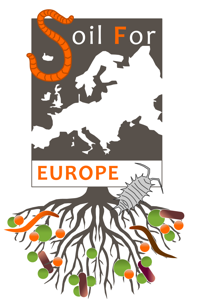
Prof. Dr. François Buscot , Dr. Kezia Goldmann , Luis Daniel Prada Salcedo
Web: SoilForEurope
Platforms: FunDivEurope forest exploratories (boreal to Mediterranean forests) and two European sites from TreeDivNet (global network of tree diversity experiments)
Funding: DFG | Project term:2014 - 2017

Web:
AquaDiva
Collaborative Research Centre SFB 1076 “AquaDiva – Understanding the Links between Surface and Subsurface Biogeosphere” of the Friedrich Schiller University Jena and three non-university research institutes in Jena or Leipzig
BIODIV3 - Towards functional microbial subsurface biodiversity research (contributing project)
"Links between surface and subsurface fungal communities along the land use gradients" Contact: Prof. Dr. François Buscot , Dr. Tesfaye Wubet , Ali Nawaz
Funding: DFG | Project term: 2014 - 2016 (third phase)
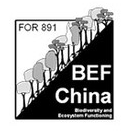
Web:
BEF China
DFG Research Group "The role of tree and shrub diversity for production, erosion conrtol, element cycling, and species conservation in Chinese subtropical forest ecosystems" (FOR 891)
BEF China - a joint Chinese-German-Swiss research project
BEF2ChinaSP7 - Soil microbial and mycorrhizal fungal diversity (contributing project)
“Interplay of tree and shrub diversity with diversity and biomass of soil micro-organisms and mycorrhizal fungi in subtropical forests in China“ Contact: Prof. Dr. François Buscot , Dr. Tesfaye Wubet , Christina Weißbecker
Web: Soil microbial and mycorrhizal fungal diversityBEFChinaSP13 - Microbial biomass and activity (contributing project)
“Biomass and activity of the soil microbial community as a function of tree and shrub biodiversity, litter diversity, and soil erosion potential in subtropical forests”
Contact: Prof. Dr. FrançoisBuscot , Dr. Jessica Gutknecht, Zhiqin Pei
Web: Microbial biomass and activityBEFChina-Phase III (contributing project)
“Rhizosphere and decomposer metagenomes of subtropical forest tree species along tree species diversity and genetic diversity gradients”
Contact: Prof. Dr. François Buscot , Dr. Tesfaye Wubet , Dr. Witoon Purahong
Funding: DFG | Project term: 2020 - 2023
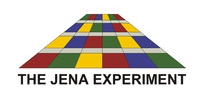
Web:
The Jena Experiment
The Jena Experiment (DFG Research Unit 5000) is one of the longest-running biodiversity experiments in the world (running since 2002). The central aim of the Research Unit is to uncover the mechanisms that determine biodiversity-ecosystem functioning (BEF) relationships in the short- and in the long-term.
Subproject 1 - Mycorrhiza
"Microbial root symbionts as drivers of eco-evolutionary dynamics and long-term biodiversity-ecosystem functioning relationships in plant communities"
Given the main objective of the Research Unit, namely to uncover the mechanisms that determine BEF relationships in the short- and in the long-term, the main goal of SP1 is to elucidate the mechanisms driving biodiversity and community assembly of AMF along a plant diversity gradient. In particular, we ask whether the interplay between plants and AMF diversity changes over time, and could play a role in the expected reinforcement of the BEF relationship with time. Our subproject takes advantage of the long-term plant diversity gradient established in the Jena Experiment, including the nested experimental treatments to separate the time-related co-adaptation with plants (plant history) from the soil history effect. We broaden the study frame by considering additional soil fungal functional groups (sapro- and pathotrophs) in comparison to AMF. Specifically, this subproject will address the following questions:
1) Does ecosystem aging (history) correspond to co-adaptation between the fungal and plant partners of AM symbioses? e.g. Does this coadaptation result in selection of specialized AMF at low plant diversity, whereas generalist AMF are selected at high plant diversity levels?
2) Is this “partner optimization” related to symbiotic link improvement as reflected by enhanced mycorrhization rates?
3) Are co-adaptation and the related BEF relationship dependent on soil history, plant history, or both?
4) Are the observed dynamics specific to AMF or mirrored by other fungal functional groups?
Contact:
Prof. Dr. François Buscot , Dr. Anna Heintz-Buschart (University of Amsterdam – UVA), Cynthia Albracht
Web: The Jena Experiment - Subproject 1
Partners:
Groups of the DFG Research Unit
The subproject is currently running (2022/2023) at the University of Amsterdam. Please contact Dr. Anna Heintz-Buschart (Assistant Professor at University of Amsterdam)
Funding: DFG | Project term: since 2002
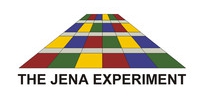
Web:
The Jena Experiment
The Jena Experiment - Exploring mechanisms underlying the relationship between biodiversity and ecosystem functioning
Contributing project:
“Diversity and functions of arbuscular mycorrhizal and soil fungi with oxidative potential in grasslands with different levels of plant diversity”
Contact: Prof. Dr. François Buscot
Web: project description
» Oak – an important forest tree: physiology, traits, biotic/abiotic interactions, adaption under a changing environment
Funding: ERC H2020-MSCA-IF | Project term: 2019 - 2021
OakMycEvo
“Functional ecology of the plant-fungus interface: Harnessing evolutionary genomics, transcriptomics and experimental ecology to dissect communication and nutrient exchange in a mutualistic symbiosis”
Contact:
Dr. Jaqueline Heß , Dr. Sylvie Herrmann , Prof. Dr. François Buscot
Funding: DAAD | Project term: 2017 - 2021

Web:
DAAD
Project in frame of a doctoral scholarship
“Molecular characterization of the microbiome associated to roots of a clonal oak tree used as an indicator system (a phytometer) across different field sites in central Germany and in Europe”
Contact: Prof. Dr. François Buscot , Dr. Sylvie Herrmann , Jean de Dieu Habiyaremye , Dr. Kezia Goldmann
Funding: iDiv – Flexpool (DFG) | Project term: 2017 - 2019

Web:
iDiv-Flexpool
PlastOak
“How trees adapt to changing abiotic and biotic pressure during their long life? Using the endogenous rhythmic growth trait of oak trees to disentangle interplays between morphological, genetic and defence-metabolic plasticity.”
Contact:
Prof. Dr. François Buscot Dr. Sylvie Herrmann , Dr. Mika Tarkka , Dr. Iván Fernández López , Dr. Martin Schaedler ,
Funding: iDiv – Flexpool (DFG) | Web:
iDiv-Flexpool

Flexpool project
“Oak Clone DF 159 helps to depict the natural history of ectomycorrhizal symbiosis and the answer of the multitrophic interactome on trees to changing field conditions.”
Project term: 2014 - 2016
Contact: Prof. Dr. François Buscot , Dr. Sylvie Herrmann , Dr. Mika Tarkka , Dr. Marie-Lara Bouffaud
Flexpool project
“Cross comparing molecular and physiological regulation in ectomycorrhizal interactions of different fungi with oak trees: a way to understand biodiversity emergence in symbioses.”
Project term: 2013
Contact: Prof. Dr. François Buscot , Dr. Sylvie Herrmann
Funding: DFG | Project term: 2010 - 2013 (2018)

Web:
TrophinOak
RootPatho – EM (contributing project)
"Gene regulation and C and N fluxes during the endogenous rhythmic growth of oaks interacting with mycorrhizal as well as root pathogenic biotrophs"
Contact: Prof. Dr. François Buscot , Dr. Sylvie Herrmann
LeafPatho – MHB (contributing project)
"Physiological and molecular responses of the oak Quercus robur L. to powdery mildew Microsphaera alphitoides and to Mycorrhiza Helper Bacterium Streptomyces AcH 505"
Contact: Dr. Mika Tarkka
» GCEF – Global Change Experimental Facility: exploring ecosystem processes under climate and land use-specific changes
Funding: BMBF /

| Project term: 2021 - 2024
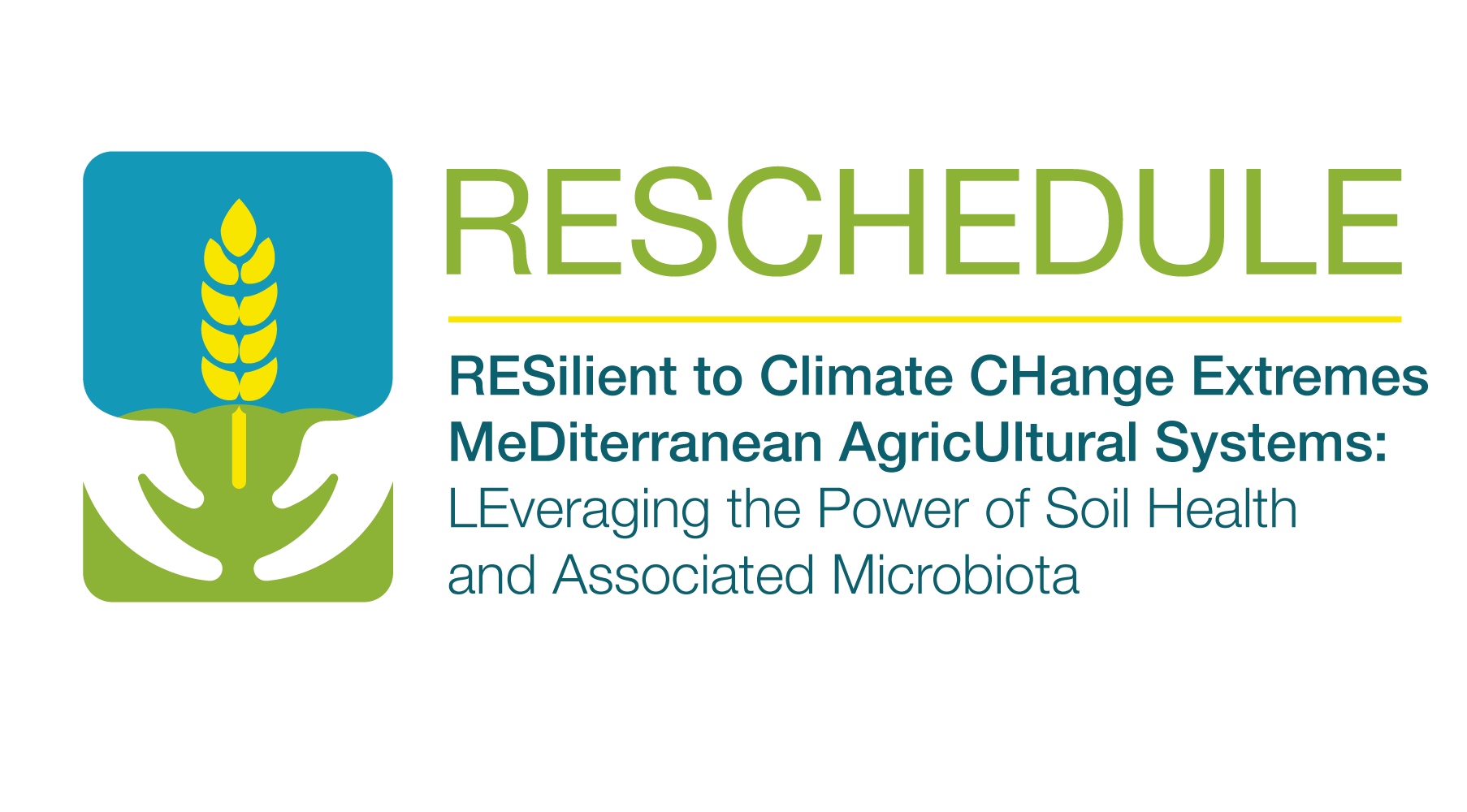
RESCHEDULE - Collaborative Project: Increasing the resilience of Mediterranean agricultural systems to climate change extremes
- subproject
"Microbiome indicators of soil health for the development of model-based sustainable management strategies in the Mediterranean region"
The main objective of RESCHEDULE is to increase the sustainability and resilience to climate change and climate extremes of smallholder farms in the Mediterranean region by improving soil health. The specific objectives of RESCHEDULE stem from the current environmental challenges, gaps in knowledge and state of the art, and the need to contribute to the implementation of essential initiatives in the field of farming systems and in particular soil neutrality, the EU Farm to Plate initiative and the European Green Deals.
This subproject supports this objective through its expertise in soil microbial ecology, in machine learning based modeling, and also through its GCEF experimental field platform, which allows co-manipulation of climate and land use in the German driest region around Bad Lauchstädt. These research activities aim to causally explain the structure and function of the soil microbiome and the mechanisms of its adaptation to aridity and agricultural management, and from this to define knowledge-based indicators of soil health. From this knowledge, recommendations for sustainable management can be derived.
Contact:
Dr. Thomas Reitz , Dr. Christina Fasching
Web: RESCHEDULE
Partners:
Technical University of Crete (UTCR, Greece), Zen Agro PC (Greece), National Research Council (CNR, Italia), University of Évora (UÉvora, Portugal), Centre of Biotechnology of Borj Cédria (CBBC, Tunisia)
Platform: GCEF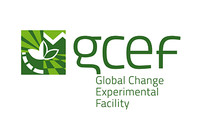
Funding: Ministry of Higher Education Egypt | Project term: 2017 - 2021

Web:
Ministry of Higher Education
Project
"Environmental drivers of soil and plant microbiomes in agricultural and grassland ecosystems."
Contact: Sara Fareed Mohamed Wahdan , Dr. Witoon Purahong , Prof. Dr. François Buscot
Platform: GCEF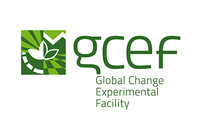
Funding: DBU (20015/391 | Project term: 2016 - 2019
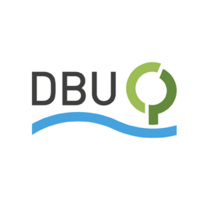
Web:
DBU
Project in frame of the DBU Doctoral Scholarship Programme
"Increasing the stress resistance of agricultural ecosystems through plant growth promoting rhizobacteria (PGPR) using winter wheat (Triticum L.) production as a case study."
Contact: Claudia Breitkreuz , Dr. Mika Tarkka , Dr. Thomas Reitz
Platform: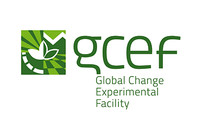 GCEF
GCEF
» Biological Data / Bioinformatics
Funding: iDiv (DFG) | Project term: 2017 - 2020, 2020 - 2024

Web:
iDiv
Joint project at UFZ/Soil ecology and iDiv/Metagemomics Support Unit (Metagen)
“Developing and adaption of bioinformatics analysis pipelines for metagenome and metatranscriptome data of highly diverse (micro)organisms communities. Performing bioinformatics and multivariate statistics. Providing guidance and training.”
The project utilizes and combines various project works on microbial biodiversity within Germany and abroad, which study a large number of soils under a wide variety of uses, in order to implement metagenomic tools (e.g., metagenome sequence analysis methods, bioinfromatic pipelines) and to offer them to users.
Contact:
Dr. Luis Daniel Prada Salcedo
Partners:
Leipzig University, German Center for Integrative Biodiversity Research (iDiv) Halle-Jena-Leipzig
Funding: iDiv / FlexPool (DFG) | Project term: 2020 - 2021 (phase I)

2021 - 2022 (phase II)

- Joint project at UFZ/Deptartment of Soil Ecology and iDiv/Metagemomics Support Unit (Metagen)
“Diversity and scenario modelling of molecular markers of plant pathogens in plant, litter and soil metagenomes”Climate change and agriculture are thought to interact as controlling forces on soil microbial communities and their functions at local and global scales.
Contact:
This project proposal will help establish causality and scenario modeling by integrating innovative metagenomic data from the large environmental gradients and data from the local experiments. Based on large datasets existing within this project consortium and also on publicly available data, molecular markers of microbial plant pathogenicity and models of their global distribution under climate and land use change will be identified and investigated.
Dr. Anna Heintz-Buschart (Assistant Professor at University of Amsterdam), Dr. Qicheng Bei
Cooperation:
Prof. Nico Eisenhauer (iDiv, Leipzig University), Dr. Carlos Guerra (iDiv, MLU Halle), Prof. Kirsten Küsel (iDiv, FSU Jena)
Funding: DFG | Project term: 2013 - 2015 (GFBio), 2015 - 2018 (GFBio II)

Web :
GFBio
GFBio – a sustainable, service oriented, national data infrastructure facilitating data sharing for biological and environmental research
Contact:
Prof. Dr. François Buscot
,
Dr. Anna Heintz-Buschart
,
Christina Weißbecker
» Further projects
Funding: DFG | Project term: 2021 - 2024
- “SpOC - Temporal and spatial dynamics of organic carbon in intermittent springs – Environmental drivers and connectivity to headwater streams”
Springs are the birth of headwater streams. They represent the starting point of the river continuum, and are important ecotones between groundwater and surface water. Intermittent springs originate from near-surface, unconfined aquifers. They display a temporarily groundwater disconnected flow regime, short residence times and may act as sources of organic carbon (OC) to headwater streams. As a result, intermittent springs have the potential to significantly impact carbon fluxes in headwater streams. However, only a few eco-hydrological studies have addressed springs as distinct sources of OC, and it is still unclear how the variable flow regime impacts the temporal variability or organic carbon in these diverse ecotones, which are typical for low mountain ranges. Therefore, the objective of this proposal is to investigate the spatial and temporal dynamics of OC in intermittent springs, environmental drivers of these processes, and their downstream impact in different low mountain ranges. This cross-scale study of the hydrological and biogeochemical properties of intermittent spring and their spatial and temporal dynamics will close the existing knowledge gap regarding the role of intermittent springs within the river continuum concept. This would further contribute to the understanding of potential shifts in the dynamics of springs due to climate change induced variations in precipitation and runoff, and the impact of their changes on both the spring ecosystem, as well as related headwater streams
Contact:
Dr. Christina Fasching , Prof. Dr. Peter Chifflard (Universität Marburg)
Partners:
Dr. Kyle Boodoo (University of Vienna, Austria)
Funding: BLE / BMEL | Project term: 2013 - 2017

Web:
CARBOWERT
CARBOWERT - Hydrothermal carbonization of materials from the sanitation sector, and the sustainable reuse of their conversion products in terms of the biochar concept
A joint project of the Helmholtz Centre for Environmental Research – UFZ (Dept. UBZ, BOOEK, TUCHEM), Deutsches BiomasseForschungsZentrum (DBFZ), TerraNova Energy GmbH, Institute for Applied Material Flow Management (IfaS) at the Trier University of Applied Sciences, and the Institute of Agricultural and Urban Ecological Projects (IAsP) affiliated to Berlin Humboldt University.
Contributing project
"Long-term effects of hydrothermal carbonized biosolids (HTCB) in soils from sewage sludge: effects on soil microbial biomass, potential for carbon sequestration and mitigation of trace gas emissions"
Contact: Dr. Elke Schulz
Funding: DFG | Project term: 2008 - 2012 (FunLink I), 2012 - 2016 (FunLink II)
Web:
FunLink
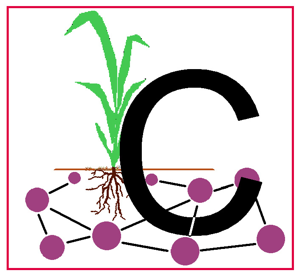
DFG Research Group „Carbon flow on belowground food webs assessed by isotope tracers“ (FOR 918)
FunLink I and FunLink II (contributing project)
„Symbiotic and saprobic fungi as link between plant derived carbon and soil food webs”Contact for FunLink I: Prof. Dr. François Buscot , Dr. Dirk Krüger, Julia Moll
Contact for FunLink II: Dr. Tesfaye Wubet , Prof. Dr. François Buscot , Dr. Dirk Krüger, Katharina Zeitler
Web: project description
Funding: Leibniz Gemeinschaft | Project term: 2011 - 2014
Work Package: Impact of Root Exudation on Microbial Community Dynamics
Contact:
Prof. Dr. François Buscot
,
Dr. Tesfaye Wubet
,
Carla Porges
Web:
IPB Rhizo
Funding: BMBF (0313285H) | Project term: 2005 - 2010
subproject
"Mycorrhizal symbioses of transgenic apple trees with increased fungal resistance"
Contact: Prof. Dr. François Buscot
Web: project description
Funding: DFG | Project term: 2005 - 2009
Cooperation: Gottfried Wilhelm Leibniz Universität Hannover, Institut für Bodenkunde (IFBK); Universität Hohenheim, Institut für Bodenkunde und Standortslehre, Fachgebiet Bodenbiologie
Contact:
Prof. Dr. François Buscot
Web:
project description
Funding: BMBF | Project tem: 2000 - 2010
Web:
BIOLOG


Project:
DIVA - The relationship between Biodiversity and Ecosystem Functioning in Grassland Ecosystems
A collaborative research effort of the Friedrich-Schiller-University and the Max-Planck-Institute for Biogeochemistry both in Jena, with the Helmholtz Centre for Environmental Research - UFZ in Halle and the University of Leipzig.
STOFF-MYKO (subproject)
"Soil carbon as well as soil fungi and mycorrhizal fungi in grassland ecosystems with different diversity"
Contact: Prof. Dr. François Buscot , Dr. Elke Schulz
Web: BIOLOG - DIVA / subproject STOFF-MYKO

